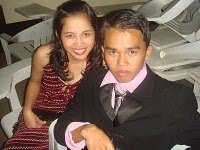Running effective meetings goes a long way to improving business performance as well as enhancing team work and morale. By following this simple steps your meetings can become an effective part of running a successful business.
How many times have you thought about or heard it said . . . Oh no not another meeting! . . . or . . . what’s this meeting for, it is sure to be another time waster!
Here are a number of practical suggestions on how to create and run effective formal meetings that do work and can assist in changing people's attitude to meetings, and most importantly their behavior when they attend.
1. Schedule meetings well in advance, wherever possible at least a week ahead and at the time of day that best suits all involved.
2. Meetings are best scheduled at times when those involved are at their most alert and productive, so it wise to agree on what is the best time to suit all that will be involved to maximise positive outcomes, if agreement is hard reach the best times are traditionally between the hours of 8.30 a.m. and 11.30 a.m.
3. The chairperson should ensure that there is an agenda which is circulate three days ahead of the meeting, this should include who are to attend, what is to be discussed and the information that needs is to be supplied or prepared for the meeting.
4. During the meeting stick to the agenda and allotted time frame, however, if you finish the agenda items early don’t extend the length of the meeting - give everyone an early mark to allow them to get back to other important duties.
5. The chairperson should circulate the written minutes of the meeting within twenty-four hours of the meeting, clearly noting who is responsible for the agreed action steps and the time frame for completion of those action steps, plus details and timing of the next meeting, if it is required.
6. In a business meeting, the chairperson should estimate in advance the cost of running the meeting, ie: the wages and on costs of all who are involved the meeting. A 'what this meeting is costing us' statement should be included on the top of the agenda, eg: 'our people costs for this one hour meeting are $1,750.00'.
Equally a figure should be included indicating what a positive outcome from the meeting will generate for the business income eg: 'Secure an additional $50,000 in new business'.
7. Include in the meeting only those people who have need to attend and who can make a worthwhile contribution as this saves the valuable time of people who simply need to have a copy of the minutes and outcomes in order to be kept update on what is happening.
8. Start and finish meetings on time, irrespective of everyone being in attendance.
9. Take 5-10 minute stretch breaks every hour for meetings that go longer than one hour, but ensure that people don't stray away for the meeting venue or become preoccupied with taking and reply to phone messages.
10. All attendees at the meeting should have their diary, laptop or a print out of the weekly/monthly schedule, so that they can diarise the necessary action steps and dates for what they have to take action on after the meeting.
The appointed chairperson is responsible for:
- The conduct of meeting and those involved
- Keeping to schedule
- Preparation of minutes and agreed follow up on action items
Plus - It is a good idea to rotate the chairperson's role every few meetings, as this gives everyone valuable experience on running a meeting, as well as buy in to value of the effective meeting process.
Some key points on the conduct in the meeting
- Attendance is essential, both in person and in mind
- Start each meeting with a quick round table feedback on individual successes for the week or period since the last meeting, this gives the meeting a positive start and gets everyone thinking about good outcomes
- Avoid personal comments and attacks
- Always respect each others ideas and opinions
- If you think it, say it - but with your mind in drive, rather than neutral
- Only one conversation at a time
- We were born with two ears and one mouth - listen twice as much as we speak, in that way meetings will go twice as quickly
- At the end of the meeting allow around five minutes quiet time for everyone to document and plan the action steps that they need to take after the meeting
- Acknowledge and celebrate every success, as well as the learning experiences from a failure
- Focus all attention on the purpose of the meeting and the desired end results and outcomes
- Always remember that laughter is the canary in the coalmine of commerce, so keep balance in the meeting - all business activity is meant to be rewarding, fun and enjoyable!
Finally, here is an idea that really works in the right circumstances
Save valuable time by running Stand Up Meetings
Regular meetings with your team and business associates can be run in up to half the normal time, if everyone stands during the meeting.
Prior to the meeting simply remove all the chairs from your meeting room and have everyone stand up around the boardroom table and watch how much quicker your meetings will go. This approach is ideally suited to daily or weekly team meetings that normally should be finished in 15 to 20 minutes but often drag on well beyond the allotted time.
Inspiring better meetings and written by Keith Ready.
A Gift Of Inspiration
'Positive inspirational messages, stories, quotes and images
Subscribe to:
Post Comments (Atom)

No comments:
Post a Comment